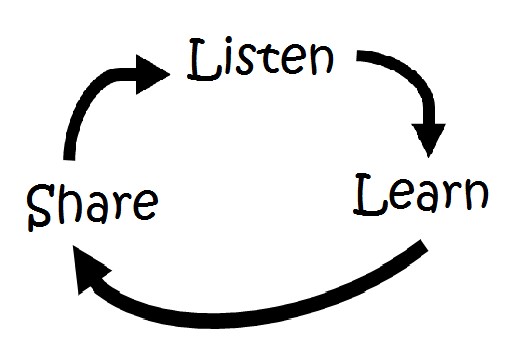
- SAP Community
- Groups
- Interest Groups
- Career Corner
- Blog Posts
- Communication – Soft Skill, Hard Impact
- Subscribe to RSS Feed
- Mark as New
- Mark as Read
- Bookmark
- Subscribe
- Printer Friendly Page
- Report Inappropriate Content

Communication – Soft Skill, Hard Impact
Written by Marco Capretta - Australia | LinkedIn & Matthew Burfitt - Australia | LinkedIn
As MBA students studying at Victoria University with a combined 30 years of experience in the workforce, we were inspired to write this blog on soft skills based on a recent visit to our ERP Application class (BCO6181) by Marilyn Pratt, John Astill and Graham Robinson who gave us some great insight into the industry. Our lecturer, Tony de Thomasis made writing this blog as a part of our assessment for this class. What we got out of the visit from these three SAP Mentors, was that while it is great to have technical skills it is also equally important to have soft skills that tend to be forgotten especially for students who are trying to break into the industry. Further inspiration came from the following blogs by John Appleby How to become a great consultant and Graham Robinson How much do you invest in You?

Usually when most people think of a list of skills needed by SAP practitioners in the IT industries, they think of expertise in areas such as programing, testing, math, and analytical skills. Yet, two of the most important skills that should be highlighted in all support functional departments, are communication skills and cross-functional understanding. Sadly, the importance of such cross-functional communication between different departments in an organisation usually only becomes evident when that same communication and understanding breaks down. The need for these skills are not always recognized immediately by new SAP practitioners coming into the workforce as many seem to first concentrate on the technical requirements and skills that are required to complete their heavy transactional roles. But when these “soft skills” are applied by SAP practitioners, benefits of customer service, efficiencies, trust, improved compliance, rationalising and problem solving are often gained within their working relationships.

Customer Service & Efficiencies
One of the clear advantages of having a SAP practitioner or IT department that has a cross-functional understanding or a realisation of the “bigger picture”, is that they understand the impact that their actions have to the end customer as well as the dependencies and effects across modules and transactions. For example, if there is a change or upgrade to be made in the ERP software, changing a Sales or Finance transaction may change the way the Sales or Accounts Receivable departments interact with the customer. If the transaction takes twice as long or has an additional level of complexity to it, the customer’s experience and relation with the company could be placed under strain. A SAP practitioner that understands this will work with the relevant department SMEs to enhance the customer’s interaction not hinder it. Beyond the knowledge of upgrades or required changes, such an SAP practitioner with extended soft skills may also have a greater understanding of how the technology or software may improve the efficiency of a department or the level of customer service that others without such soft skills may possibly overlook. Such tools as EDI (Electronic Data Interchange), RFID (Radio Frequency Identification), or software mobility could be introduced to gain market share, reduce downtime, up-skill employees, reduce waste, or break into uncharted markets. Through sharing their knowledge, the SAP practitioner is not only enhancing the business’ internal customers, but also themselves.

Trust & Improved Compliance
SAP practitioners need to build trust between their internal customers to ensure that external customer’s feel reassured that information and services are relayed as honestly and accurately as possible. This is vital, especially in terms of compliance. If the SAP Practitioner is not transparent from the beginning it can affect both internal and external customers causing great conflict and issues for organisations in terms of non-compliance and if this occurs the trust of an individual can diminish. A SAP practitioner needs to promise on what they deliver and this trust can be achieved through effective communication channels from the onset. If departments are kept informed and updated throughout, the trust improves significantly. Being open and honest also allows the SAP practitioner to reduce the pressure on themselves. As any pressure could potentially cause them to cut corners and deliver something substandard which in turn would risk compliance. We all need to have the same mindset of one company, one team so that we all have a common understanding of goals and objectives. If we all can understand the issues we have, the need for compliance is easier to accept and adapt to.

Rationalising & Problem Solving
If there is open communication and cross-functional understanding between departments, the value of the SAP practitioners’ input increases. As the relationship develops through knowledge sharing and trust, a common language is developed, joint solutions become easier to obtain, and potential hazards or issues are highlighted much earlier as conflicting challenges become less of a concern and the “greater good” is in the forefront of the discussions. Exercises such as tabling problems, brain storming sessions, and joint workshops become easier to schedule allowing the groups to work on topics that can enhance not only the working experiences of the staff, but also bring the benefits of innovation and collaborative efforts to the business. This behaviour also makes it easier when it comes time to escalate issues to upper management as the unified front between the departments emphasize the importance of the problem. The ability of effective reporting and prioritising also is enhanced, as there becomes a joint visualisation of what is important. This exposure to reporting, cross-functional problem solving and visibility to upper management can bring clear advantages to a SAP practitioner’s career and development.

To succeed in today’s workforce, you need to have a passion for learning, self-development and the ability to change in changing environments. Developing soft skills like communication and cross-functional understanding are not short-term goals, but ones that will continue to develop throughout your career. Finding mentors within your organisation or your industry can be a start to identifying the areas opportunity for your development. If these mentors are not readily available, short courses, universities, or tools such as SCN (SAP Community Network) can be a start to enhancing your network, and increasing profile visibility. Although these opportunities are available, it is only those who show the drive, initiative, and desire to further develop themselves that will gain an advantage from them. As in other areas of life, what you get out if it is dependent on what you put in.
Special thanks to;
Marilyn Pratt
John Astill
Graham Robinson
Related Blogs;
Podcast: SAP Soft Skills - Myth Versus Reality - with Guy Couillard of OTA
- SAP Managed Tags:
- Careers
You must be a registered user to add a comment. If you've already registered, sign in. Otherwise, register and sign in.